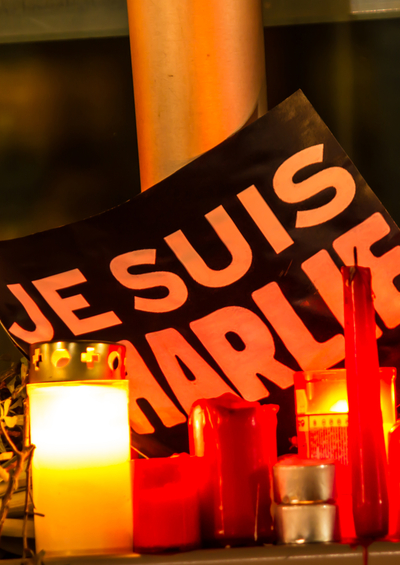The Challenge of the “Islamic State”
Only intelligence services can track down IS terrorists before they return home in order to carry out terrorist attacks in Europe or America.
January 14, 2015

The challenge to international peace and security posed by the so-called “Islamic State” has dominated international headlines for months. Yet, while thousands have been killed and hundreds of thousands are fleeing Iraq and Syria, the international community is still struggling to formulate – and implement – a credible response.
Terror terrorizes
The Islamic State (IS) confronts the West with a fundamentally new kind of challenge. As an organization, IS violently rejects even the few moral principles universally shared by humanity.
IS’s peculiar combination of extremist ideology, illicit financing and the quest for an independent territorial base turns it into an existential threat not just to the West, but also to the – largely involuntary – inhabitants of areas under IS control.
Summary executions and forced displacement have particularly affected the Kurdish population, but Shia Muslims, Christians and other so-called infidels are by no means immune.
In October 2014, the UN reported that 24,000 Iraqi civilians have been injured or killed by IS in the first eight months of 2014, more than a million are fleeing the territories controlled by the jihadist militia.
The ambitions and actions of the Islamic State challenge our shared values and principles. More than that, however, they also pose a very real threat to our interests and security. As such, they demand an equally decisive response.
The Islamic State against the world
And this time, the world stands united in opposition to the Islamic State. Last August, the UN Security Council declared IS a threat to world peace under Article V of the UN Treaty.
The Council unanimously passed a strongly-worded resolution in which it condemned the “gross, systematic and widespread abuse” of human rights by the Islamic State and called on Member States to take national measures to prevent fighters from travelling from their soil to join the groups as well as to interrupt supplies of arms and to cut off financial support.
As things stand, however, such measures will not suffice to contain the threat. The attack on the French magazine “Charlie Hebdo” confirmed the threat is in Europe.
Fuel to the fire
Indeed, international condemnation of IS actions only seems to have emboldened the IS and its fighters. Increasingly, therefore, Western leaders have grown convinced that it is impossible to negotiate with an actor like the Islamic State, that we will have to back up our words with deeds and, if need be, defend our values and our interests militarily.
Yet, more than ten years into the war on terror and with ISAF’s withdrawal from Afghanistan, the West has become war-weary. According to a recent study by the Chicago Council on Global Affairs, more than four in ten Americans believe that their country should henceforth stay out of international entanglements.
Consequently, they seem to have taken some comfort in the idea – an idea that was certainly nurtured and promoted by the Obama Administration – that the fight against terrorists could henceforth be conducted largely through limited operations of Special Forces and drone strikes.
Too many battlefields
The fight against IS, however, will not be decided in Iraq and Syria alone. The massacre of the Paris satirical weekly Charlie Hebdo’s staff was an assault on the freedom of expression and free press.
The attack in France and the horrific shooting at the Canadian Parliament in October illustrates all too vividly that the terrorist threat cannot be contained in the Middle East.
The terrorist bombings in London and Madrid in 2005 and 2004, respectively, which cost the lives of more than 200 people, remind us what may be in store.
According to a United Nations estimate, more than 13,000 foreign terrorist fighters from more than 80 countries have joined the ranks of IS. Many of these people will return home, heeding the call of Abu Bakr al-Baghdadi to take the fight to Western shores.
As one IS fighter, talking on the phone to a Reuters reporter, warned: “The West are idiots and fools. They think we are waiting for them to give us visas to go and attack them or that we will attack with our beards or even Islamic outfits. … They infiltrated us with those who pretend to be Muslims and we have also penetrated them with those who look like them.”
A job for the intelligence community
In confronting the threat posed by the Islamic State, therefore, our intelligence services will have an important role to play. Only they are capable of identifying the discontent Jihad-tourists traveling to the Middle East to fight the “infidels.”
Only intelligence services are capable of tracking down these terrorists before they return home in order to carry out terrorist attacks in Europe or America. But they will only be capable of doing this if the European and American services work closely together and share their information.
It is therefore very important to restore the trust in intelligence services that has been lost during the recent NSA scandal. The services must be accountable to democratically elected institutions and their work must be subjected to tight and transparent rules.
Without a doubt, the aberrations of the post-9/11 era must be corrected – not only in the United States, by the way, but also in Europe. Only if we adhere to it ourselves will we be able to defend the liberal order governed by the rule of law and human rights.
Takeaways
The Islamic State (IS) confronts the West with a fundamentally new kind of challenge.
IS violently rejects even the few moral principles universally shared by humanity.
In October 2014, the UN reported that 24,000 Iraqi civilians have been injured or killed by IS.
International condemnation of IS actions only seems to have emboldened the IS and its fighters.
The fight against IS, however, will not be decided in Iraq and Syria alone.

